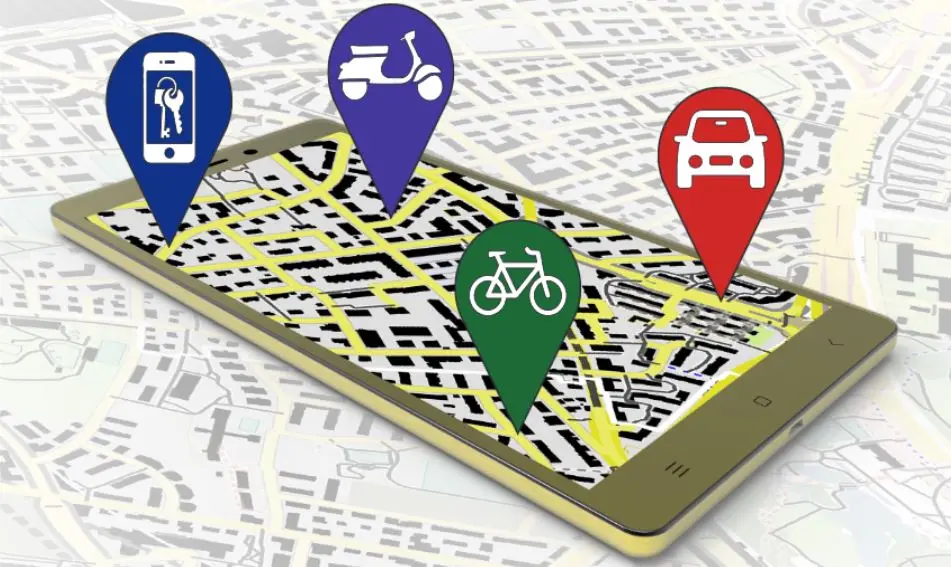Low prices and more vehicles in the shared mobility sector
A ZHAW study on shared mobility concepts in European cities shows that bike-sharing prices have been dropping rapidly, whereas fleet sizes have increased massively. The same pattern can be seen in the car-sharing sector, where prices are declining and the range of car models is enormous. Recently, scooter sharing has become increasingly significant, too.

For the third consecutive year, BSc Transportation Systems students at the ZHAW have conducted the “Shared Mobility” study. For this study, they took a look at existing shared mobility concepts in seven European cities. The results, from Zurich, Berlin, Copenhagen, London, Paris, Vienna and Barcelona, show that the growth of the sharing economy has continued and has led to further changes.
Scooters trending
While the previous study focused mainly on peer-to-peer (P2P) services, which means car sharing amongst private individuals, this year’s study also included scooter sharing, explains Thomas Sauter-Servaes, head of Transportation Systems at the ZHAW School of Engineering. Scooters are shared in the same way as in the bike-sharing models. According to the study, scooter sharing is growing rapidly. Scooter sharing is already popular in Berlin and Paris, whereas there is no such concept in Zurich yet. The operators’ prices differ. In contrast to bike sharing, the costs for scooter sharing are still higher than public transport costs.
Changes in the bike-sharing sector
Due to the market entry of new operators, 2017 saw big changes in the bike-sharing sector. Sandro Dünki, the student who managed the project in collaboration with Marc Aeberhard, says: “Fleet sizes have increased massively. The aggressive expansion strategy of the predominantly Asian operators has caught many cities off guard.” Zurich, for instance, has gained three new operators since last year. The number of bicycles for hire has risen by more than 200 per cent and now stands at 1055. The bicycles provided by new operators do not need to be returned to any specific docking station and can be parked anywhere. “This sharing concept has only been made possible by new technologies and the fact that almost everyone now owns a smartphone,” says Aeberhard. For this service to work, users must be able to locate and remotely unlock the bikes at any time of day.
Lively car-sharing market
Car-sharing schemes are still very popular in European cities. The study shows that the overall number of vehicles has increased and that prices in the car-sharing business have gone down across the board. “Prices vary a lot, so that it is worth comparing different operators,” says Dünki. Large operators have generally been somewhat cheaper. However, in Zurich, there is still only one operator. In addition, public transport is still cheaper than car sharing in most cities.
“The market is quite lively. New operators are appearing on the scene, while others are disappearing,” says Aeberhard. Furthermore, the difference between car sharing and P2P sharing continues to decrease, but car sharing still remains the cheapest option, while the P2P-sharing sector continues to grow. More and more people are offering their vehicles on sharing platforms. In most cities, the long-term rental of a car is more attractive, as opposed to traditional car-rental services.
Downloads and further information
Study «Shared Mobility» English (10MB) (PDF 9.45 MB)Article «Shared Mobility 2017» (German)
Chart «Bike-Sharing» (PNG 519 kB) (German) (PNG 325 kB)Chart «Car-Sharing» (PNG 639 kB) (German) (PNG 325 kB)Chart «P2P-Sharing» (PNG 595 kB) (German) (PNG 325 kB)Chart «Scooter-Sharing» (German)
(PNG 325 kB)
Contact
Specialist contact
Dr. Thomas Sauter-Servaes, ZHAW School of Engineering, Telefon 058 934 71 77, E-Mail thomas.sauter-servaes@zhaw.ch
Media contact
Matthias Kleefoot, Public Relations, ZHAW School of Engineering, Telefon 058 934 70 85, E-Mail medien.engineering@zhaw.ch